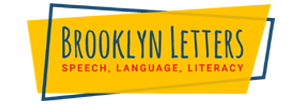Self-regulation is critical to a child's learning and development. Self-regulation is a person's ability to maintain their arousal level and a level of alertness that is appropriate for the demands of the environment. Children and adults use various strategies and techniques to maintain self-regulation throughout their daily lives. Many of these strategies are sensory based and help our nervous systems sustain physiological regulation in order to participate in social activities, daily living activities, and other age appropriate activities. Sensory processing is a key ingredient to a child's self-regulation.
Sensory information that our bodies process includes:
Proprioceptive input: Gives our bodies information of body position and where our body is in space.
Vestibular input: Provides information to our body about movement and changes in head position.
Tactile input: Sense of touch through our bodies, hands, and mouth; allowing us to interpret what we feel.
Auditory input: Sense of hearing, allowing us to interpret what we hear.
Visual input: Sense of vision, allowing us to interpret what we see.
Our bodies take in sensory information from the environment and process that information, resulting in a behavior in response to the environment. When children have difficulty processing sensory information or have difficulty adequately registering the sensory information, difficulties in self-regulation can result.
Just a few examples of how adults sustain regulation on a daily basis using sensory strategies include:
Chewing gum to help sustain attention.
Going out for a massage or engaging in physical exercise when feeling stressed.
Lying under a heavy blanket when relaxing and falling asleep.
When a child has difficulty with self-regulation, it can impact the child's ability to participate in school activities, in activities of daily living, social activities, etc. For example, if a child has difficulty sustaining an optimal level of arousal and is very active they will potentially have difficulty listening to classroom instruction, difficulty following the classroom routine, etc. Another example is a toddler who has difficulty tolerating transitions and difficulty self-soothing. This toddler may have difficulty utilizing tools or strategies to assist with self calming, like engaging in a calming movement activity, getting a hug for comfort, knowing what to expect through a visual schedule, etc.
Here are a few questions to consider when looking at a child's functioning and determining whether difficulties with self-regulation may be contributing to your child's learning potential:
Does your child have difficulty staying seated or sitting still during tabletop tasks
Does your child have difficulty transitioning between activities
Does your child have difficulty sustaining attention to a conversation, activity, or task
Does your child have difficulty self-soothing when upset
Does your child have difficulty filtering excessive noise resulting in difficulty sustaining attention
Does your child have difficulty following multi-step directions or multi-step activities without requiring assistance
Does your child have a low activity level
Does your child seem to get lost while completing a task, delaying his/her ability to complete it in a timely manner
These are only a few questions related to possible self-regulation difficulties. If difficulties with self-regulating is impacting daily life and your child's ability to participate in age related activities to their fullest potential, an occupational therapy consultation or evaluation may be beneficial. Occupational therapy can assess a child's individual sensory needs and self-regulation capacity to assist with increase in functional independence.
Here are a few examples of techniques that an occupational therapist could utilize to assist you and your child with their self-regulation:
Create social stories: creating a story about the child and identifying their arousal level (our bodies move slow, just right, and fast).
Creating a sensory diet that is specific to the child's sensory system and needs, to help provide needed sensory input to maintain regulation.
Increasing a child's self-awareness and ability to identify their own arousal level.
Providing sensory rich experiences for the child to engage in to increase opportunities for the child to receive the sensory input that they may need.
Engaging in sensory based community activities that provide the sensory information that the individual child may benefit from.
Dr. Neeha Patel is a licensed occupational therapist who offers a holistic approach to therapy, drawing from evidenced-based practice techniques, sensory integration theory, neurodevelopmental treatment, family-centered care, and a play-based approach. She is Sensory Integration and Praxis Tests (SIPT) certified, and has extensive experience helping children from birth to 16 years old with sensory processing delays, fine and visual motor delays, social skills, pre-writing and handwriting skills, as well as in their primary activities of daily life. She has worked with varying diagnoses including autism spectrum disorders, learning disabilities, developmental delays, developmental coordination disorder, cerebral palsy, disruptive behavior disorder, and down syndrome. Neeha has special interest and completed her doctoral work in the area of cultural sensitivity when working with children and their families. Neeha offers home, school, or community visits in Brooklyn and Manhattan (Upper West Side, Midtown, Chelsea, Clinton, West Village, Soho, Tribeca, Union Square, Murray Hill, Gramercy Park, Upper East Side).
Craig Selinger
Latest posts by Craig Selinger (see all)
- Private-Pay NYC SETSS: Special Education Teacher Support Services - June 29, 2022
- 7 Do’s and Dont’s of Teaching Self-Control to Young Children - June 11, 2022
- 8 Tips to Help Parents Practice Positive Parenting - June 11, 2022
